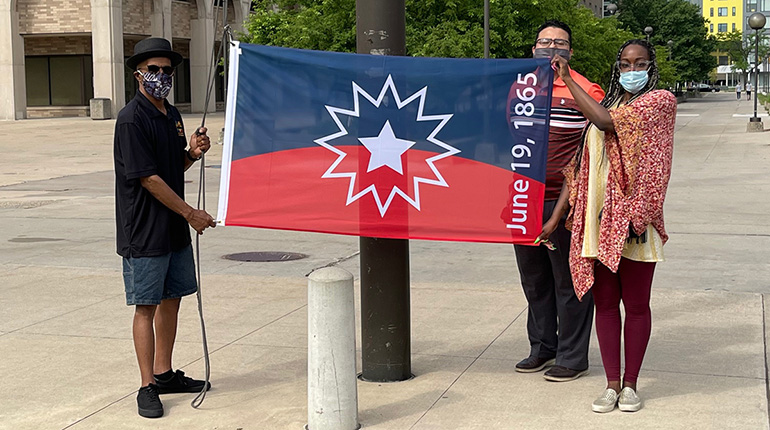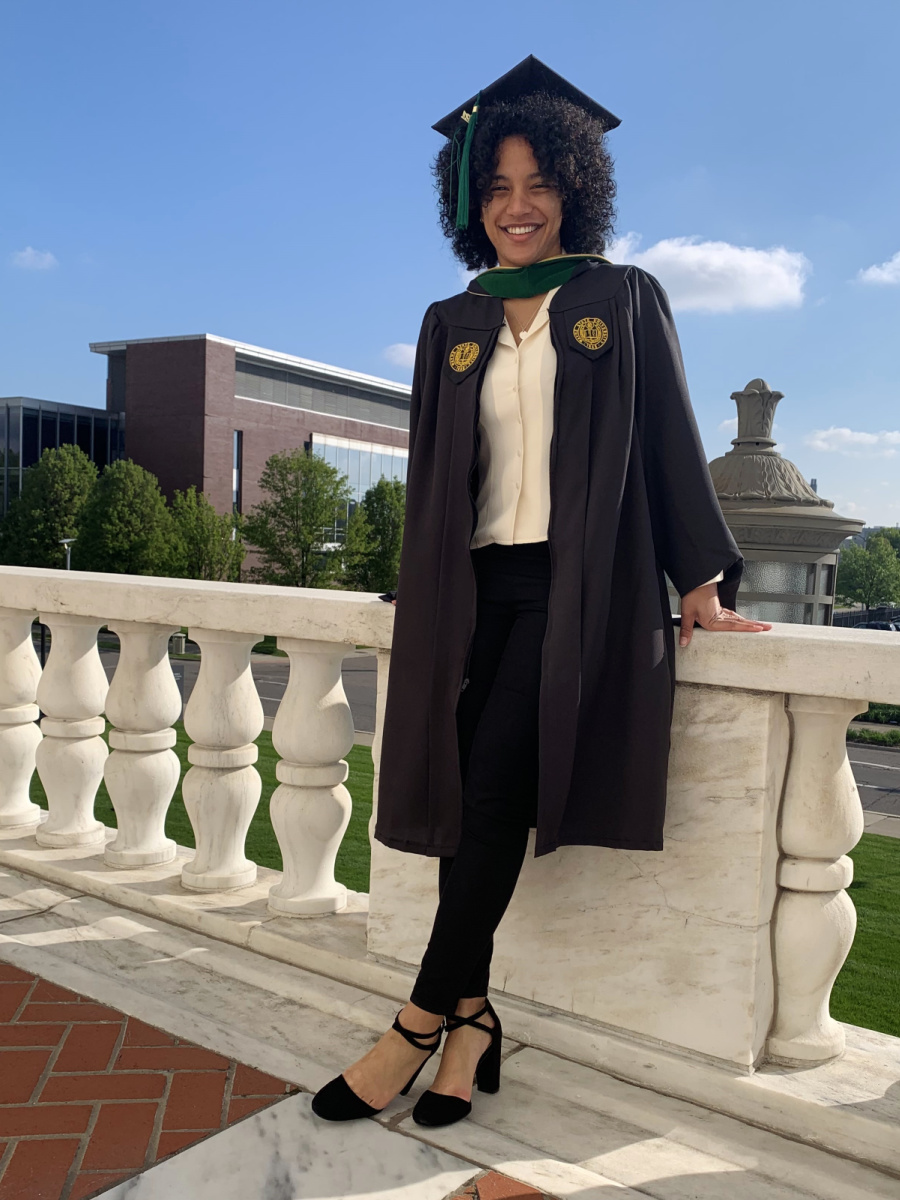
Isabella Warmbrunn was in high school when 17-year-old Trayvon Martin was killed.
That incident had a profound impact on Warmbrunn, who grew up in a predominantly white city in Michigan, and it stuck with her when she came to Wayne State University as an undergraduate in 2015. In fact, it was one of the driving forces for her to become a Warrior. “I wanted to be in an environment that was more diverse and had more Black people,” she said.
Throughout undergrad, Warmbrunn was heavily involved in social and political issues, she said — especially those of the Black community. After she graduated with her bachelor’s, Warmbrunn stayed and completed a master of science through WSU’s School of Medicine.
But it was during her last year of graduate school, in the summer of 2020 — which saw the United States' biggest protests for racial justice and civil rights in a generation, following the murder of George Floyd by police and numerous other injustices against the Black community — that Warmbrunn created a petition for Wayne State to officially recognize Juneteenth. The holiday honors the end to slavery in the United States and is considered the longest-running African American holiday.
Short for “June Nineteenth,” Juneteenth marks the day when federal troops arrived in Galveston, Texas, in 1865 to take control of the state and ensure that all enslaved people be freed. This came a full two and a half years after President Abraham Lincoln signed the Emancipation Proclamation.

“For me, Juneteenth is a very different feeling than, say, the Fourth of July because that's when we were finally able to even be considered human beings and no longer seen as property,” Warmbrunn said. “And that's the important part — it doesn't matter that on the Fourth of July we were separate from Britain because our people were still viewed as property at that time.”
What started with a Google form petition sent to fellow students advocating for the Juneteenth recognition began to circulate far and wide. “People just started signing it, emailing me and asking for updates. It just went there,” Warmbrunn said.
And with the help of friends and Student Senate members Kamali Clori and Jasmine Coles, Warmbrunn was able to get support from the student governing body, giving her the chance to approach WSU’s Board of Governors about Juneteenth recognition.
Though Warmbrunn didn’t realize it at the time, much of what she was advocating for dovetailed with Wayne State President M. Roy Wilson’s Social Justice Action Committee, which had been recently created.
“There was a subcommittee within one of the social justice committees to look at what Juneteenth would look like, if we created it,” said Leonard Savala, director of Wayne State’s Office of Multicultural Student Engagement (OMSE). “Along with (Associate Provost for Diversity and Inclusion and Chief Diversity Officer) Dr. Marquita Chamblee, (Associate Professor) Billicia Hines, and a couple of others, we thought through some of the things we should have, such as a flag raising ceremony. But we wanted something that would celebrate it but also be educational.”
“And I think that was really important for folks to say, yes, it's a time to celebrate, but we need to have that educational component. Those recommendations then went to Provost (Laurie Lauzon) Clabo. Then Dr. Chamblee pulled together the committee of folks, and that’s how it came together from a university standpoint.”
Beginning Sunday, June 13 at 2 p.m., the university kicks off its inaugural Juneteenth celebration with a raising of the Juneteenth Flag, a symbolic representation of the end of slavery in the United States. The celebration ceremony, which also includes a performance from the Freedom Players, begins a host of weeklong virtual events and educational activities taking place across campus and Detroit. The festivities and learning opportunities culminate on June 19 with the 2021 Virtual African American Graduation Celebration.
“Juneteenth is really a celebration for everyone. It’s an educational celebration of the liberation, and getting to understand the very deep, intricate, beautiful history that Black people have in this country,” Warmbrunn said. “There are so many amazing things in our culture that are consistently overlooked. For people to just really take a seat and think, ‘Hey, what is the importance of Black culture in this country? Why is it the way it is? And how has their history affected their culture?’ I think people should, if they can, just really sit and think about that.”
